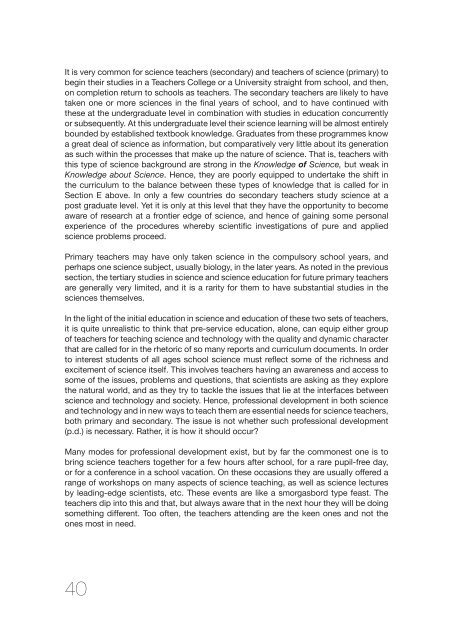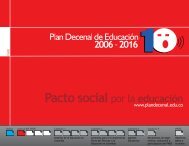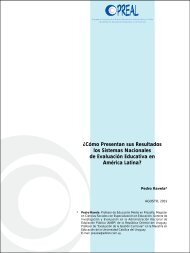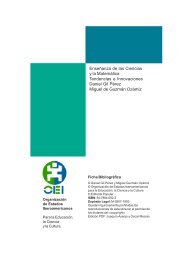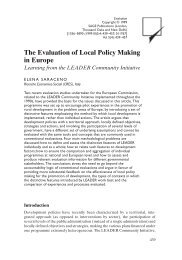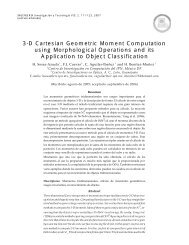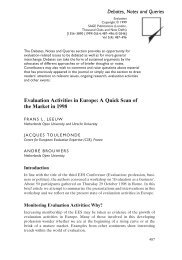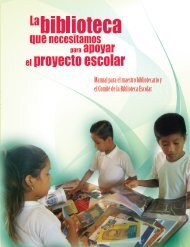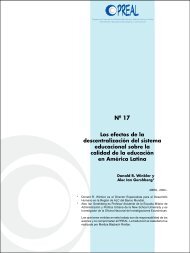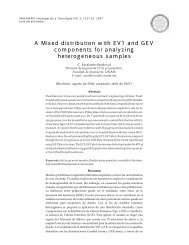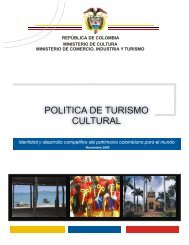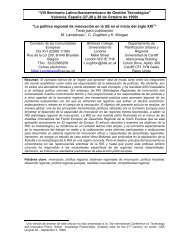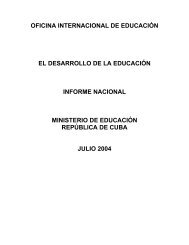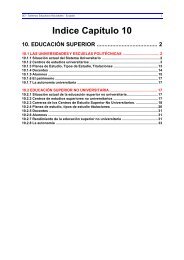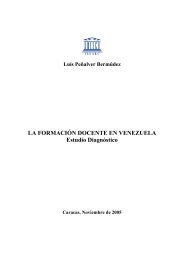Science education policy-making: eleven emerging issues; 2008 - OEI
Science education policy-making: eleven emerging issues; 2008 - OEI
Science education policy-making: eleven emerging issues; 2008 - OEI
Create successful ePaper yourself
Turn your PDF publications into a flip-book with our unique Google optimized e-Paper software.
It is very common for science teachers (secondary) and teachers of science (primary) to<br />
begin their studies in a Teachers College or a University straight from school, and then,<br />
on completion return to schools as teachers. The secondary teachers are likely to have<br />
taken one or more sciences in the final years of school, and to have continued with<br />
these at the undergraduate level in combination with studies in <strong>education</strong> concurrently<br />
or subsequently. At this undergraduate level their science learning will be almost entirely<br />
bounded by established textbook knowledge. Graduates from these programmes know<br />
a great deal of science as information, but comparatively very little about its generation<br />
as such within the processes that make up the nature of science. That is, teachers with<br />
this type of science background are strong in the Knowledge of <strong>Science</strong>, but weak in<br />
Knowledge about <strong>Science</strong>. Hence, they are poorly equipped to undertake the shift in<br />
the curriculum to the balance between these types of knowledge that is called for in<br />
Section E above. In only a few countries do secondary teachers study science at a<br />
post graduate level. Yet it is only at this level that they have the opportunity to become<br />
aware of research at a frontier edge of science, and hence of gaining some personal<br />
experience of the procedures whereby scientific investigations of pure and applied<br />
science problems proceed.<br />
Primary teachers may have only taken science in the compulsory school years, and<br />
perhaps one science subject, usually biology, in the later years. As noted in the previous<br />
section, the tertiary studies in science and science <strong>education</strong> for future primary teachers<br />
are generally very limited, and it is a rarity for them to have substantial studies in the<br />
sciences themselves.<br />
In the light of the initial <strong>education</strong> in science and <strong>education</strong> of these two sets of teachers,<br />
it is quite unrealistic to think that pre-service <strong>education</strong>, alone, can equip either group<br />
of teachers for teaching science and technology with the quality and dynamic character<br />
that are called for in the rhetoric of so many reports and curriculum documents. In order<br />
to interest students of all ages school science must reflect some of the richness and<br />
excitement of science itself. This involves teachers having an awareness and access to<br />
some of the <strong>issues</strong>, problems and questions, that scientists are asking as they explore<br />
the natural world, and as they try to tackle the <strong>issues</strong> that lie at the interfaces between<br />
science and technology and society. Hence, professional development in both science<br />
and technology and in new ways to teach them are essential needs for science teachers,<br />
both primary and secondary. The issue is not whether such professional development<br />
(p.d.) is necessary. Rather, it is how it should occur?<br />
Many modes for professional development exist, but by far the commonest one is to<br />
bring science teachers together for a few hours after school, for a rare pupil-free day,<br />
or for a conference in a school vacation. On these occasions they are usually offered a<br />
range of workshops on many aspects of science teaching, as well as science lectures<br />
by leading-edge scientists, etc. These events are like a smorgasbord type feast. The<br />
teachers dip into this and that, but always aware that in the next hour they will be doing<br />
something different. Too often, the teachers attending are the keen ones and not the<br />
ones most in need.<br />
40


